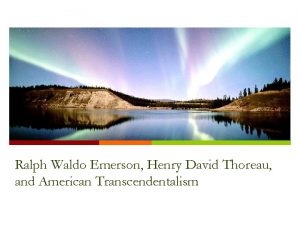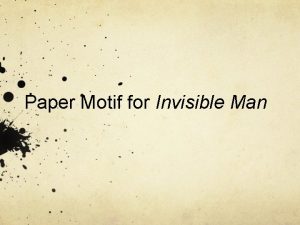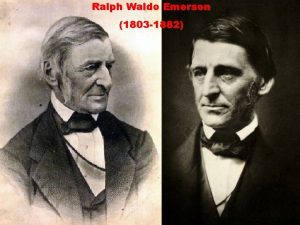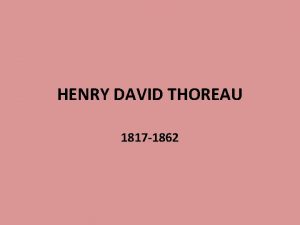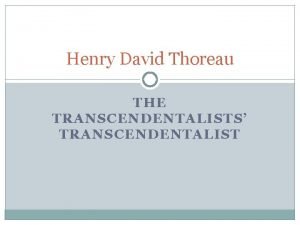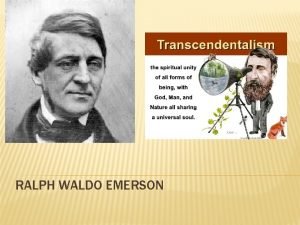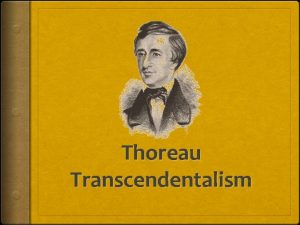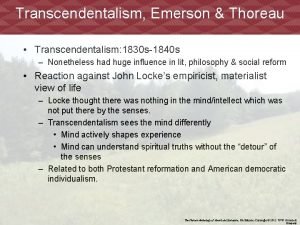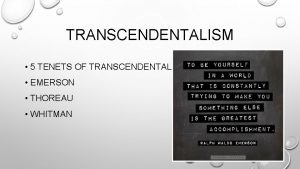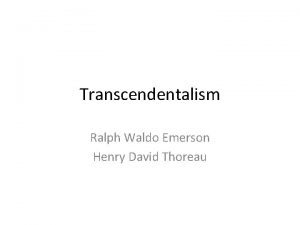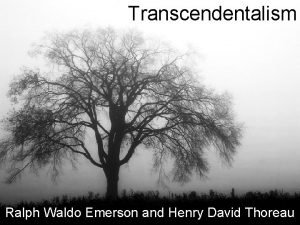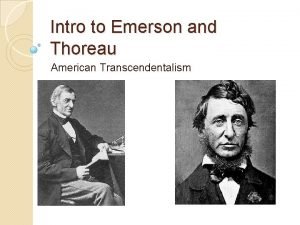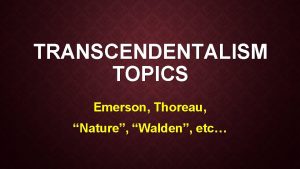Transcendentalism Emerson Thoreau Ellison What is transcendentalism Its









- Slides: 9

Transcendentalism Emerson, Thoreau, Ellison

What is transcendentalism? • It’s all about finding “an original relationship to the universe” according to Emerson. • It’s about not thoughtlessly conforming, but, rather, being a sanctuary unto yourself Conformity

Where did it come from? • It started in the New England region of the United States (northeast corner: Massachusetts, New York, Connecticut, etc. ) in the early nineteenth century (early 1800 s). • It was started by people who disagreed with orthodox Calvinism • The protestant sect of Christianity that believed in salvation through personal faith and the grace of God. • These were the people that came to the “New World” to escape religious persecution in Great Britain • Also known as the Puritans

Roman Catholic Church Calvinists • Broke with the Roman Catholic Church, to practice “reformed Protestantism, ” which was all about having a personal relationship with God, rather than having to go through the church, like the Catholics believed. Also believe in predestination. Puritans • Early American settlers who left Great Britain to practice their special kind of Protestantism in their own way.

Flash forward many years … • The transcendentalists took these ideas even further, believing that not only can you have a person relationship with God, but you can even find God, goodness, salvation, etc. WITHIN YOURSELF. • They believed you can even become God-like

Inspirations English Romanticis m Locke’s empiricism Hume’s skepticism Transcendentalis m

Transcendentalism & Romanticism • An artistic, literary, and intellectual movement going on in Europe during the first fifty years of the 19 th century • Emphasized emotions and glorified the individual • Glorified the human experience in nature • Influence on transcendentalists • That the human is an intimate part of the landscape • No divorce from the human and nature

John Locke’s empiricism • John Locke: English philosopher out of the Enlightenment period • Influenced a lot of early American ideology: i. e. the Declaration of Independence and the Constitution; the Social Contract • You have no direct experience with the universe; you only know what your senses tell you • Influence on transcendentalism • The universe is not outside of us , it is within us

Hume’s Skepticism • David Hume: Scottish philosopher of the 18 th century, died before the American Revolution • You must have a good reason to justify a belief • Transcendentalists rejected the idea of the Protestant God because there is not reasonable explanation for it

